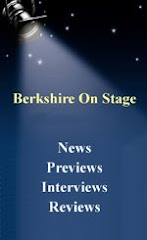
It's been 50 years since I dyed an egg or paid much attention to Easter, but not too long ago a gay friend invited me to take part in his family's Greek Orthodox customs. For the Eastern church, the resurrection of Christ is the big deal, while Christmas is just a minor holiday.

For those who have attended a full tilt Roman Catholic sung High Mass, lasting more than an hour, that's the Reader's Digest condensation of the Greek Orthodox ritual. Their celebration starts at 10 PM, plenty of robes, processions and general prayer muttering in the totally impenetrable Greek language, until Midnight when the lights go out.

The darkness lasts only a couple of minutes as one-by-one we light candles, but the darkness represents the time in the crypt, and then the light slowly comes, He is Risen! Gales of Hallelujah! singing, lots more prayer mumbling, and finally...the feast with the priest! We all went to the Parish Hall where a big spread was laid out and everyone has a great time.
Getting home at 3:30 in the morning is fine with me, but the next morning there is the business with the red eggs. The Greek tradition is to dye the eggs red, the color of Christ's blood. But wait. There's more.
The Greeks are not the only ones who take part in the egg cracking game, but they take it very seriously. The person who ends up with an intact egg is guaranteed good luck for the coming year. Not many get this special blessing.
They call the game tsougrisma, meaning "clinking together" or "clashing." It is pronounced chigger-ah in English.
Basically each player holds an egg and they lightly tap the ends together. It can either involve one person holding the egg while the other taps or both players can tap their eggs together at the same time. The winner is able to successfully crack the ends of their opponent's egg.

It is fairly widespread in other cultures, too. The Netherlands calls this game Eiertikken; Germany declares it Ostereiertitschen. Croatians describe it as the egg fight or tuca. In Northern England an "egg-jarping" competition is held and the loser has to eat their eggs. If you search hard enough, you can find a similar version in some southern backwater towns. It is called "pocking eggs" and while it is similar to the egg cracking tradition in Europe, the winner has to eat the eggs of the losers.

In most of our country, God Bless America, we have lost touch with such quaint customs, and replaced them with new outfits to wear, chocolate and marshmallow bunnies and overeating, not as bad as Thanksgiving, but close.
Even if I no longer go to Easter mass, I still hate to see the commercialization of the religious day in tacky, superficial common culture.
So on Easter I think back to that sharing of the Greek traditions and how much they remain deeply rooted in my memory, and many people's lives. For others it is just an excuse to eat a ham dinner.




No comments:
Post a Comment